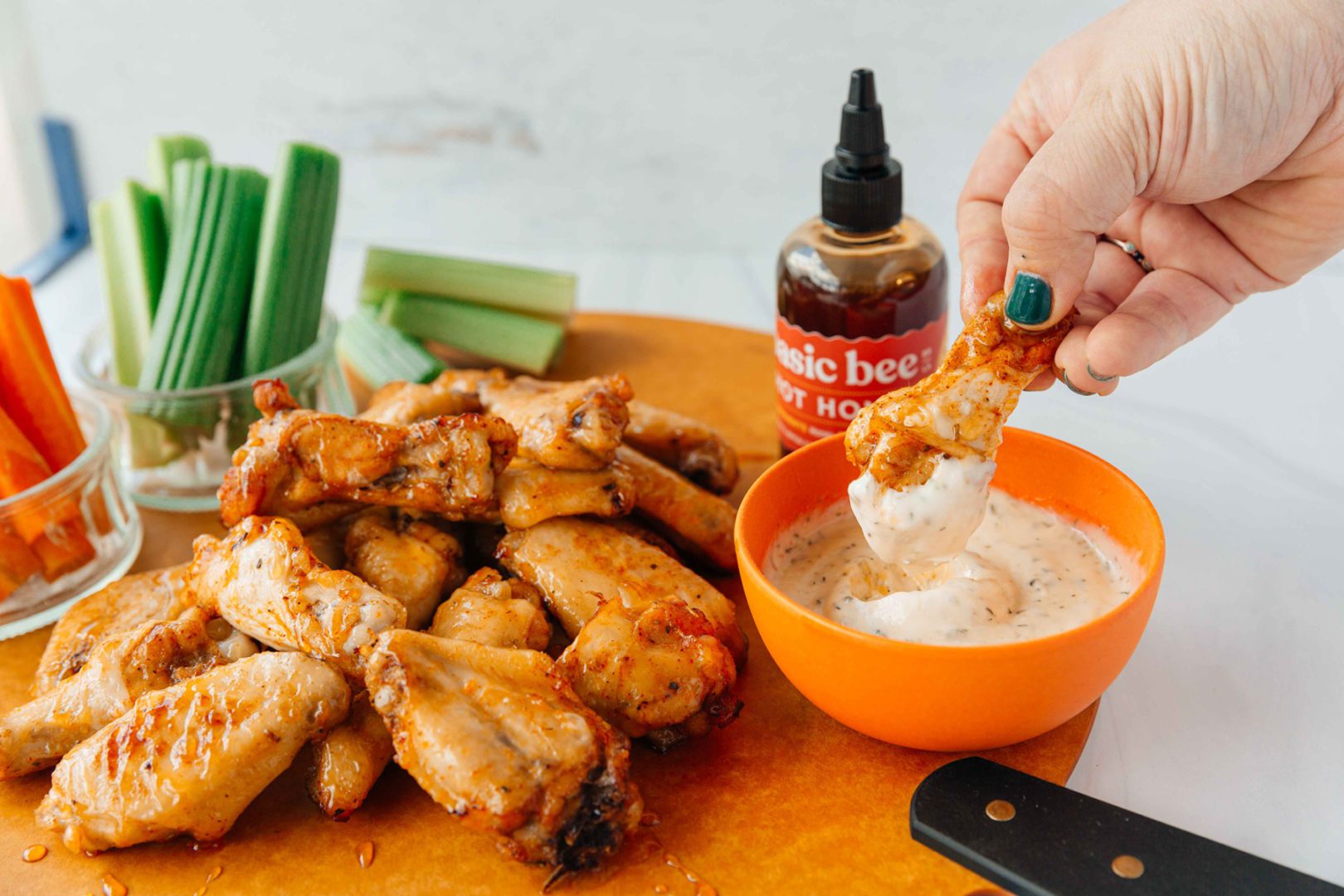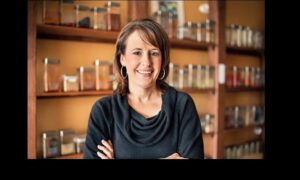I recently attended the President’s Summit for the Crohn’s & Colitis Foundation—my son Clay was diagnosed with severe Crohn’s disease in 2016, and I serve as the local chapter board President. As I read the conference agenda, I was very excited about a session on the latest research on diet.

First, let’s clear this up: there is no Crohn’s diet. There are no research studies that conclusively connect diet with IBD remission, flare reduction or cure. However, diet is important. Getting in the driver’s seat in regard to self care—this includes diet—can provide greater quality of life.
Back to the conference…
As I listened to this researcher talk about the impressive amount of data collected on various diets (Mediterranean Diet, Specific Carbohydrate Diet and others,) there was an overall, looming sense that adopting these food plans was going to be really, really terrible. The words alone—”elimination,” “forbidden foods,” “restriction”—conjured a sad, unappetizing and isolated world. One slide featured foods with giant red X’s on them, and this roused murmurs and snickers all around me. One guy muttered, “I guess I’ll never eat cake again.” Another said, “Deal breaker.” I imagined Registered Dieticians, folding food plan printouts, slowly sliding them across the desk to their IBD patients while avoiding eye contact, as if delivering a life sentence.

This sort of response is not new to me. I hear it nearly every day in my shop and cooking classes. When folks have a prescribed food plan to address a health issue, they almost always operate from a space of negativity and lack and use doom and gloom language. We seldom hear, “I have hypertension, and I have a food plan that could save my life!“ Rather, we hear: “I’ll never, ever eat another potato chip” or “My life is now exactly zero fun” or “There is no way I can do this.” They hold the tools to heal their own body (a flat-out miracle,) but it’s seen as a life sentence.
Here’s the thing, I can teach a cooking class on any food protocol from any list of allowed foods, and that class will be big fun and rich with info, ideas and recipes for delicious meals. How do I do this? I approach all cooking and eating from a place of robust abundance. When I see a food list, all I see are possibilities. It was the same at the conference. While others around me heard, “no cake for you,” I heard, “here’s what’s possible.”
My personal experience with my son’s food plan is a great example. As we explored the Low FODMAP diet (a diet developed to treat IBS that is often suggested to folks with IBD,) I approached it from a place of excited, hopeful discovery. With hope that the diet could improve his functional symptoms, we spent time reading Monash University’s FODMAP research and downloaded the app. We spent zero time discussing restricted or “red X” foods. Because what good does that do? What purpose is served in ruminating about not being able to eat Skittles?
My “food plan life sentence” joke is funny. And it’s not. Crohn’s disease is a life sentence, and there is ample negative talk around diagnosis, treatment and long-term outlook. Let’s change the conversation where we can. Let’s talk about lifestyle changes—like diet—from a space of positive, rich abundance. Let’s talk about diet in the same way we talk about other forms of self care like yoga, meditation and taking on a hobby. Less life sentence. More life changing. Tweak the words. Change the approach. It’s a game changer.
Here are my 3 tips for folks living with Chronic Disease on embracing their prescribed food plan:
- Cook your own meals. Cooking at home from whole ingredients is where it’s at. Preparing meals at home is connected to better health outcomes, increased mental health, better social and family connections, decreased truancy, longevity, the list goes on and on and on. Trying to match your food plan with packaged/processed food, restaurant menus or fast food will cause frustration and powerlessness. Focus your efforts in your kitchen—there is massive power in the work of creating your own meals. Harness that power.
- Share with others—In our family, we all eat the same meals. There isn’t an “IBD friendly” plate for Clay while we dine on “forbidden” foods. When you come from a space of big, juicy positive love for your food plan, you will make big, juicy yummy meals that fuel and nourish and satisfy, AND you will want you to share all that deliciousness. Do not isolate and eat on “your meal plan.” Invite folks over. Serve those scrumptious dishes to friends and family. When you remove “I can’t have,” from your vocabulary and replace it with “what can I create today,” the floodgates will open up and you will create delicious food.
- Ask for what you need—Healthcare practitioners work hard to provide superlative patient care and create positive outcomes. Tell them your food plan approach, and ask for help. Ask your dietician to bring in a cooking instructor. Ask your cooking instructor to bring in a dietician. Ask your support group to take a cooking class. Ask your family to learn about your food plan. Ask your mom to research recipes (moms are good at research—trust me.) Ask message boards and sub reddits and Facebook groups and Instagram posts and all the interwebs for ideas and inspiration and help. Ask me. There are tons of people listening and ready to help. Ask.
Check out this link to Clay’s favorite FODMAP friendly tacos. They’re delicious, and they feed a crowd. Invite friends over, and share a meal!
Have questions about your IBD diagnosis? The Crohn’s and Colitis Foundation website is a world of information. Find out about support groups, read patient stories and get your questions answered. You can also connect with me. I’m a great listener.





